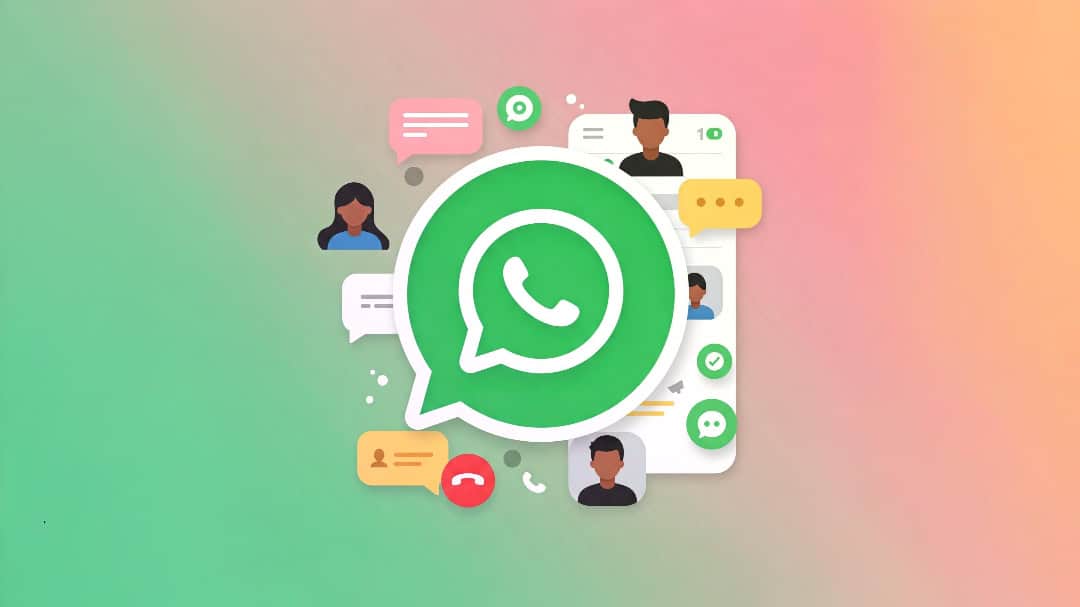WhatsApp has long been a vital tool for personal and professional communication, but its all-or-nothing approach to blocking—where blocking a contact silences both messages and calls—has frustrated users for years. Imagine a colleague who sends crucial project updates via chat but insists on calling late at night. Or a relative whose messages you don’t mind, but whose frequent video calls disrupt your workflow. In 2025, WhatsApp’s evolving privacy features finally address this gap.
Account Verification
Complete verification steps to continue
This guide dives into the latest updates, workarounds, and expert strategies to block WhatsApp calls without severing text-based communication.
The Short Answer
As of 2025, WhatsApp does not natively allow users to block calls without blocking messages. Blocking a contact still restricts all forms of communication. However, new tools and creative solutions now offer workarounds to achieve this goal. Let’s explore your options.
Why WhatsApp’s Blocking System Works This Way
Before 2024, WhatsApp treated blocking as a binary action. Meta’s rationale was simplicity:
- Security: Blocking all interactions prevents harassment vectors (e.g., bypassing message blocks with calls).
- User Experience: A single toggle reduces confusion for less tech-savvy users.
However, growing demand for granular control—fueled by a 2023 Pew Research survey showing 41% of users wanted selective blocking—pushed WhatsApp to innovate.
2025 Solutions: How to Block Calls Without Blocking Messages
1. Use WhatsApp’s “Silence Calls” Feature
What It Does:
- Mutes incoming calls from specific contacts.
- Notifications are disabled, but calls still ring once (to avoid suspicion).
- Messages remain unaffected.
How to Enable:
- Open the contact’s chat.
- Tap Contact Info > Custom Notifications.
- Toggle “Silence Calls” and disable “Call Notifications”.
Limitations:
- Calls aren’t blocked—they’re just muted.
- The contact can still leave voicemails (if enabled).
2. Third-Party Apps (Proceed with Caution)
Apps like Call Control or Truecaller integrate with WhatsApp to filter calls.
How It Works:
- These apps use Android/iOS accessibility features to auto-decline calls from selected numbers.
- Messages continue flowing through WhatsApp.
Risks:
- Security vulnerabilities (third-party apps may access sensitive data).
- Inconsistent performance across devices.
Expert Insight:
“Third-party call blockers are a stopgap solution. Always verify app permissions and reviews before installation.”
— Sarah Lin, Mobile Security Analyst at CyberDefense Magazine
3. Custom Automation (Android Only)
Tools like Tasker or Macrodroid let you create scripts to auto-decline WhatsApp calls.
Steps:
- Install Tasker (Play Store).
- Create a profile triggering on WhatsApp calls from specific numbers.
- Set action to “End Call” and “Suppress Notification”.
Note: Requires technical know-how and may drain battery life.
4. Leverage WhatsApp Business (For Professionals)
WhatsApp Business’s “Away Mode”:
- Set automated replies to messages while muting calls during specific hours.
- Calls are redirected to voicemail or ignored.
Limitation: Designed for businesses, but personal accounts can use it.
The Future: Will WhatsApp Add Selective Blocking?
Meta has hinted at testing “Call-Specific Blocks” in beta versions, driven by:
- User Demand: Over 2 million requests via WhatsApp’s feedback portal.
- Regulatory Pressure: GDPR and India’s IT Act 2023 push for finer privacy controls.
Expected Timeline:
- Late 2025 (unofficially confirmed by TechCrunch sources).
Troubleshooting Common Issues
Problem: “Silenced Contacts Keep Leaving Voicemails”
- Fix: Disable voicemail via your carrier or set a custom greeting (“This number doesn’t accept voice calls”).
Problem: “Third-Party Apps Crash During Calls”
- Fix: Whitelist the app in battery optimization settings and update to the latest version.
Best Practices for Managing Calls in 2025
- Combine Tools: Use “Silence Calls” + “Do Not Disturb” mode during focus hours.
- Educate Contacts: Politely state, “I prefer messaging over calls for quicker responses.”
- Audit Permissions: Regularly review third-party app access to WhatsApp.
Conclusion
While WhatsApp still ties call blocking to messages in 2025, the gap is narrowing. By using muted notifications, third-party tools, or automation, you can tailor your experience to minimize disruptions without burning bridges. Stay informed about upcoming features—selective blocking could soon make these workarounds obsolete.
FAQs
Q1: Will the contact know I’ve silenced their calls?
A: No. Calls will ring once on their end, then go silent.
Q2: Can I block video calls specifically?
A: No. WhatsApp treats voice and video calls the same.
Q3: Does “Silence Calls” work on group calls?
A: No. It only applies to one-on-one calls.
Q4: Are third-party call blockers safe?
A: Reputable apps like Truecaller are generally safe, but avoid unknown developers.
By blending WhatsApp’s native tools with smart strategies, you can reclaim control over your communication—without missing a message.
